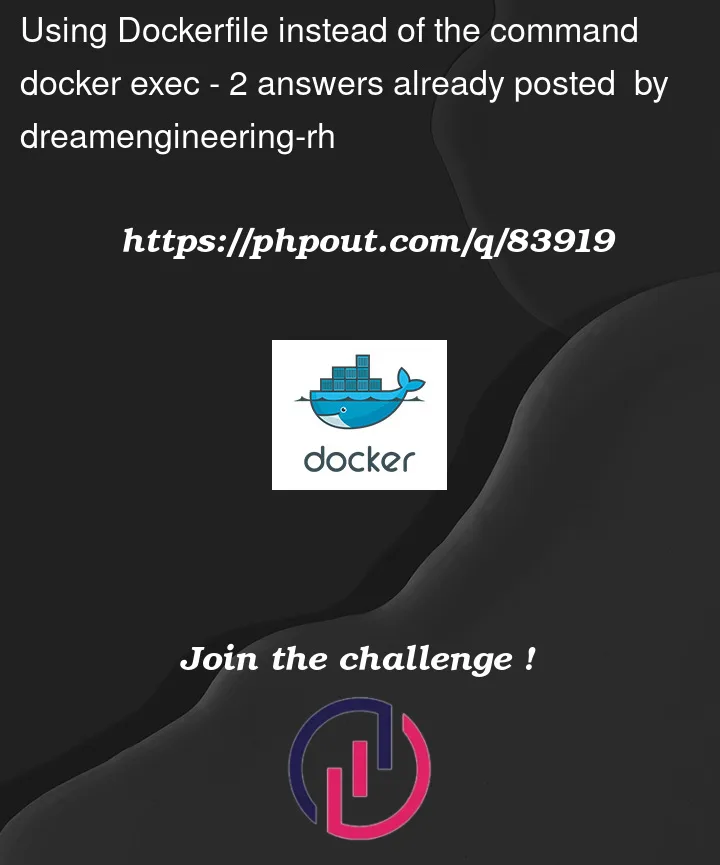I have the following setup in GitLab CI. I have a script which I use to build my application using php, composer and npm commands.
I want to replace the script with a single Dockerfile.
Here is the script:
#!/bin/bash
if [ "$APP" = "webapp" ]; then
docker exec -t cozact_app composer install &&
docker exec -t cozact_app php artisan down &&
docker exec -t cozact_app php artisan migrate --force &&
docker exec -t cozact_app php artisan storage:link &&
docker exec -t cozact_app php artisan droit:run &&
docker exec -t cozact_app npm install;
fi
if [ "$APP" = "webapp" ] && [ "$ENV" = "test" ]; then
docker exec -t cozact_app npm run dev &&
docker exec -t cozact_app php artisan up;
fi
if [ "$APP" = "webapp" ] && [ "$ENV" = "preprod" ]; then
docker exec -t cozact_app npm run production &&
docker exec -t cozact_app php artisan up;
fi
if [ "$APP" = "webapp" ] && [ "$ENV" = "prod" ]; then
docker exec -t cozact_app npm run production &&
docker exec -t cozact_app php artisan up;
fi
#!/bin/sh
composer install &&
php artisan down &&
php artisan migrate --force &&
php artisan storage:link &&
php artisan droit:run &&
npm install
if [ "$var" = "test" ] ; then
npm run dev &&
php artisan up;
else
npm run production &&
php artisan up;
fi




2
Answers
Here is the issue composer install shows within gitlab-ci
This issue is related to a part that is mentionned in the composer.json file, I did comment it to make it work for me, but I don't know if there will be any further issues due to this omit
You can use the following Multi-stage
Dockerfile, and adapt it to your usecase.This Dockerfile is composed of 3 stages:
php artisancommands that should run during the build and not during the run.php artisancommands that needs to run during the run should go in aCMDorENTRYPOINTin the last stage)In you
gitlab-ci.ymlyou’ll have something like the following: